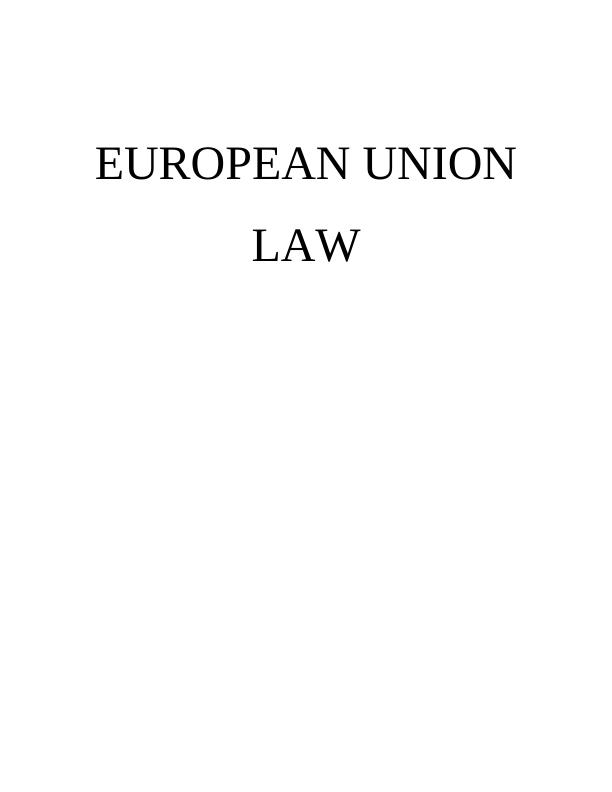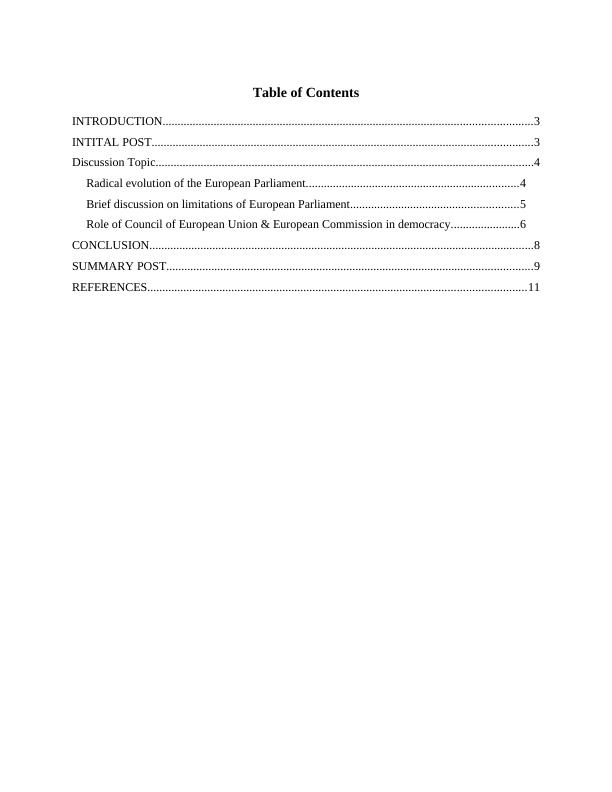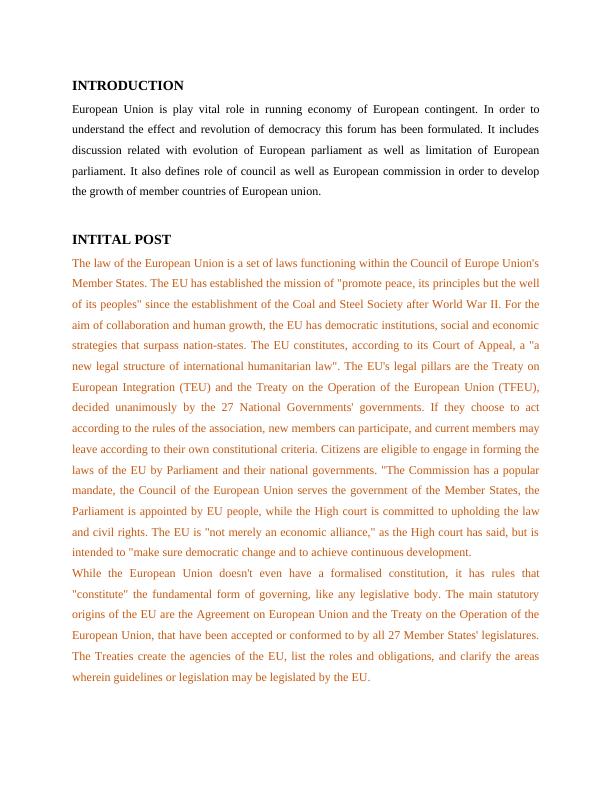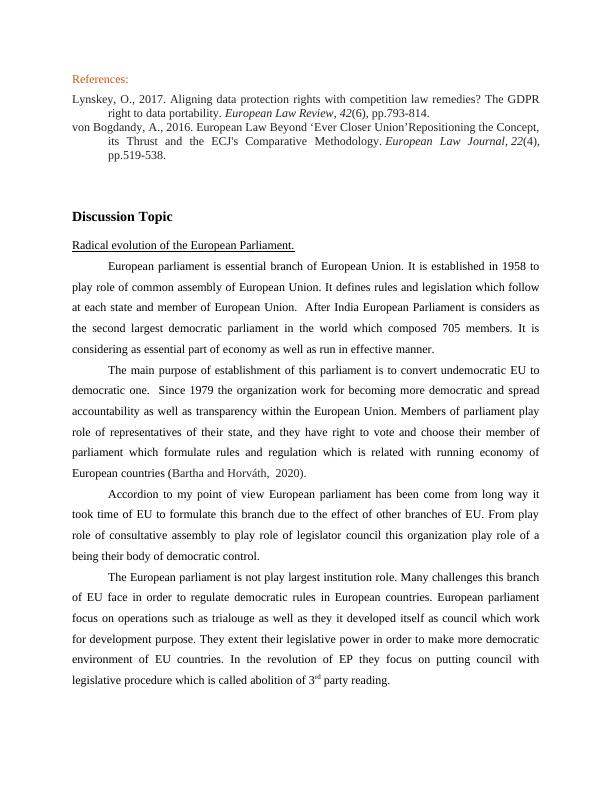European Union Law: Evolution, Limitations, and Role of Council and Commission
11 Pages3052 Words1 Views
Added on 2022-12-28
About This Document
This article discusses the evolution and limitations of European Union Law, focusing on the role of the European Parliament in maintaining democracy. It also explores the role of the Council of European Union and European Commission in decision-making and policy implementation. The article emphasizes the importance of fair treatment and equal representation for the citizens of member countries.
European Union Law: Evolution, Limitations, and Role of Council and Commission
Added on 2022-12-28
ShareRelated Documents
End of preview
Want to access all the pages? Upload your documents or become a member.
The English Law Assignment
|5
|1950
|84
Role of EU Parliament and Sources of EU Law
|5
|972
|90
European Law Assignment Solved
|8
|2511
|275
Powers of the European Commission and Preliminary Reference under Article 267 TFEU
|9
|2576
|179
Institutions of European Union and Judicial Protection: Legal Report on Direct Effect, Indirect Effect, and State Liability
|7
|2424
|420
Regulation of Night Work: Role of European Commission, Council of Minister, and European Parliament
|9
|3617
|75




